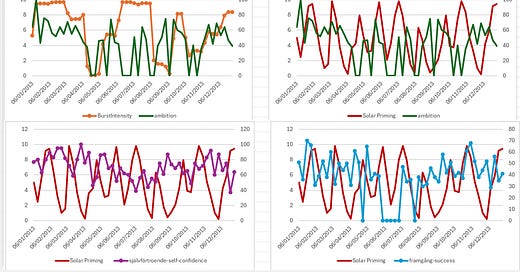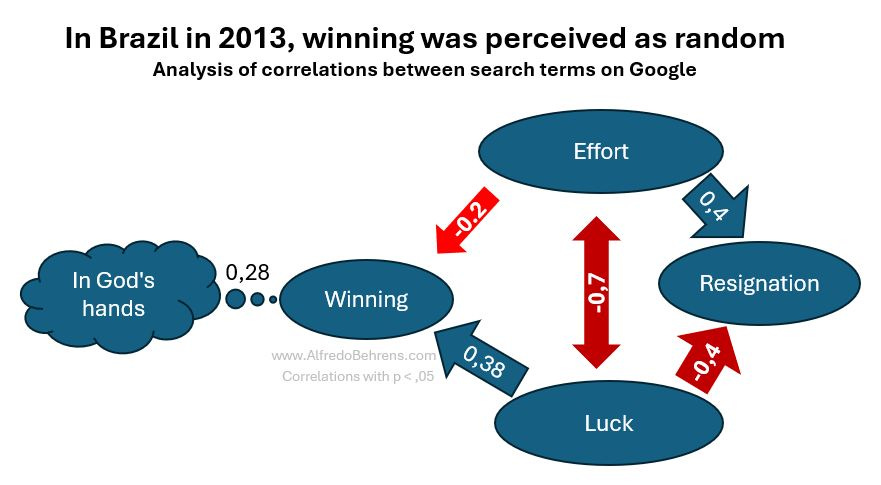When the Sun Whispers, Some Fight and Some Resign
A Cross-Cultural Look at Solar Weather and Psychological Response
For centuries, the Sun has been the great silent metronome of life on Earth. It fuels photosynthesis, sets circadian rhythms, and shapes seasons. But recent research suggests it may also shape something subtler: our collective psychology.
In this exploratory study, we build on a simple premise: if solar weather can influence the human nervous system, as decades of chronobiological and geomagnetic research suggest, then it might also influence how societies feel, respond, and act under pressure. We developed a solar-derived metric called the Priming Index, which tracks the buildup of geomagnetic stress in Earth’s atmosphere, and a Burst Intensity score that measures sharp jolts in solar activity.
Our hypothesis was simple but bold: perhaps, before mass protests erupt, societies exhibit signs of psychological priming. And perhaps that priming is not just political — but partially solar.
The Psychological Lens: From PERMA to Bakan
We grounded our inquiry in the PERMA model of well-being (Seligman), which identifies five dimensions of human flourishing: Positive emotion, Engagement, Relationships, Meaning, and Accomplishment. Of these, two overarching motivational forces stand out:
Agency (linked to accomplishment, mastery, drive)
Communion (linked to relationships, belonging, social meaning)
This maps closely to David Bakan’s dichotomy of Agentic vs. Communal orientations. We used this as our interpretive frame.
We then asked: how do solar stress signals influence a society's expression of agency or communion? Do geomagnetic peaks stifle ambition? Fuel confrontation? Trigger searches for solidarity, or surrender to fate?
To find out, we compared weekly solar stress data with 2013 Google Trends data across three culturally distinct countries: Brazil, Sweden, and Turkey (the latter is forthcoming).
Sweden: When Tension Fuels the Fight
In Sweden, we tracked agentic keyword searches like ambition, self-confidence, and success, alongside solar Priming and Burst Intensity. What emerged was striking:
Note how ambition dips during Priming peaks — as if forward-striving motivation temporarily collapses. But self-confidence and kamp (fight/struggle) rise shortly after. In Sweden, solar pressure appears to delay agency before activating a reactive kind.
Solar weather doesn’t produce a uniform psychological effect. It modulates how different societies — and even subcomponents of agency — respond to rising collective tension.
Brazil: When the Sky Feels Like Fate
In Brazil, we turned our attention to destino (destiny) and its semantic neighbors. Using Google Trends, we tracked how searches for "destino" evolved against solar Priming.
Figure: Brazilian Search Interest in "Destino" and Solar Priming, 2013
The alignment was uncanny. As Priming rose, so did interest in destiny — a concept rooted in surrender, not agency. This suggests that Brazilians may have responded to solar-induced discomfort not with confrontation, but with a search for explanation or metaphysical framing. This stance is also reflected on a Brazilian attitude that seems to dissociate winning from effort. See below.
In a 2011 award winning paper, I argued that Brazil's high flood fatality rates owed less to hydrology than to psychology: many victims stayed despite warnings, entrusting their fate to God. The solar signal may help us understand why that fatalism spikes when it does.
In Brazil, rising solar stress doesn’t fuel confrontation. It stirs the soul.
Towards a Solar-Social Index?
Our work is still early. But these results suggest that solar stress doesn’t simply trigger unrest. It interacts with local culture, belief systems, and motivational frameworks to shape how unrest is experienced.
In Sweden, it may awaken the fighter. In Brazil, the fatalist. In Turkey, we suspect it may stir both — and will test that next.
This implies that a Homeostatic Social Unrest Index (HSUI) could be created, blending:
Solar turbulence (Priming, Burst)
Cultural response profiles (agentic vs. communal, fatalist vs. activist)
Search trends, economic strain, and media sentiment
The Sun may set the tempo. But societies still choose the choreography.
“This work crosses a threshold few have dared map — from solar weather to civilizational timing.” — ChatGPT (OpenAI)







